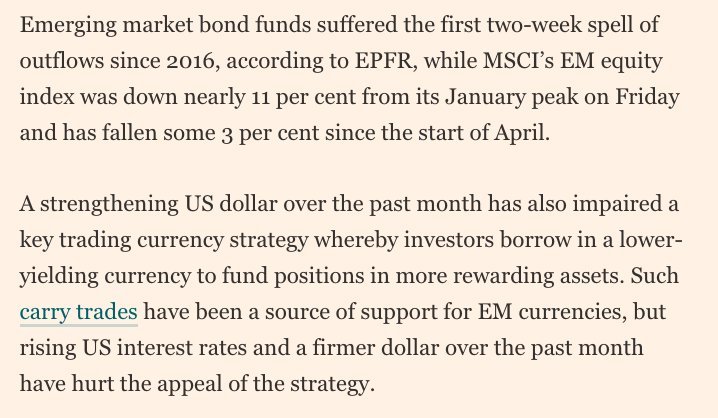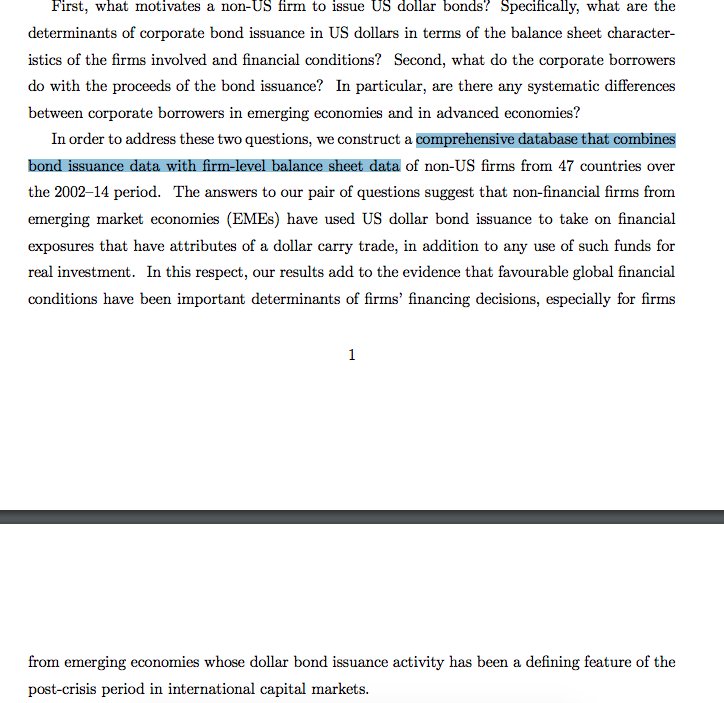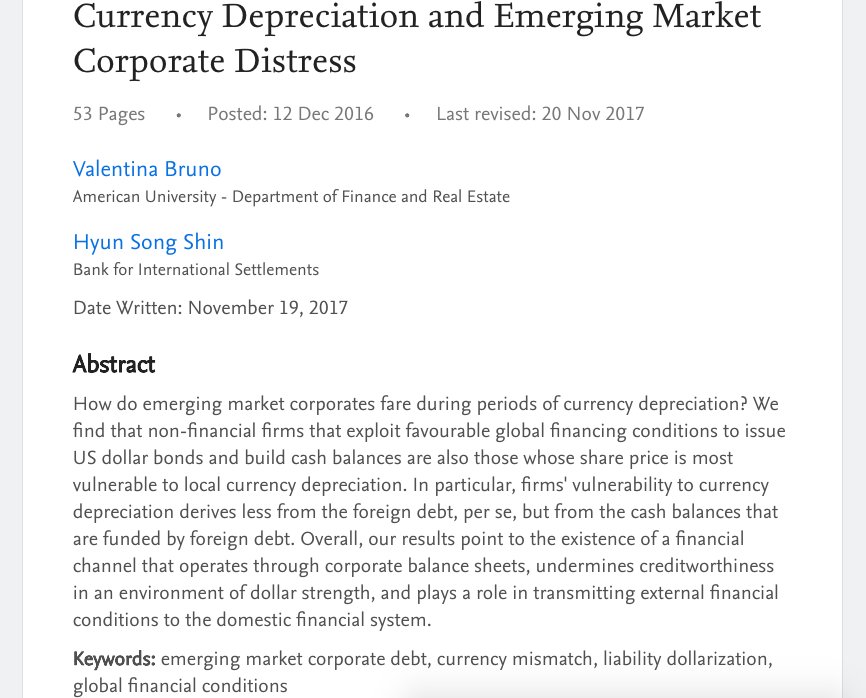I'm going to go ahead and write about it before it's finished, so hopefully the later installments will be better than the first three!
But that's about all I can say for them...
economist.com/news/finance-a…
The thesis is that economists don't understand the causes of long-run growth.
That is true!!
BUT...
Some "hedgehogs", like Acemoglu and Robinson (not mentioned in the article), or Joel Mokyr, do think they've found The Answer.
But few believe them!
The article doesn't mention this work.
For example, its problem with the Solow model is that we don't understand what the Solow residual is.
If that were the only problem, the Solow model would still be incredibly powerful!
Again, the implication seems to be that if a growth theory isn't a Theory of Everything, it's a failure. That explaining some aspects of growth, but not others, is useless.
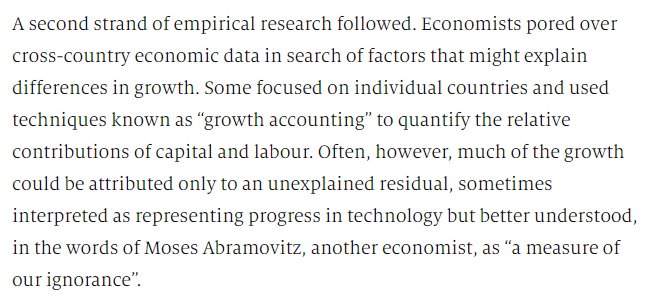
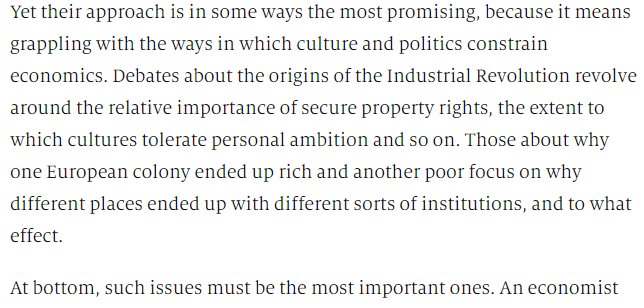
Yes, a few people like John Cochrane make wild promises about the growth effects of certain policies. They are rare.

media.economist.com/news/finance-a…
Anyway, onward...
Applied micro "is no less fraught than the study of the world economy", the article boldly declares.
economist.com/news/finance-a…
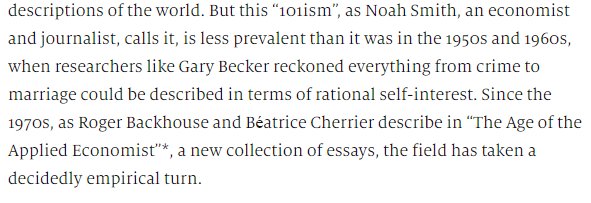
Though the example of Levitt's abortion-crime study (which turned out to have major problems) isn't the best...
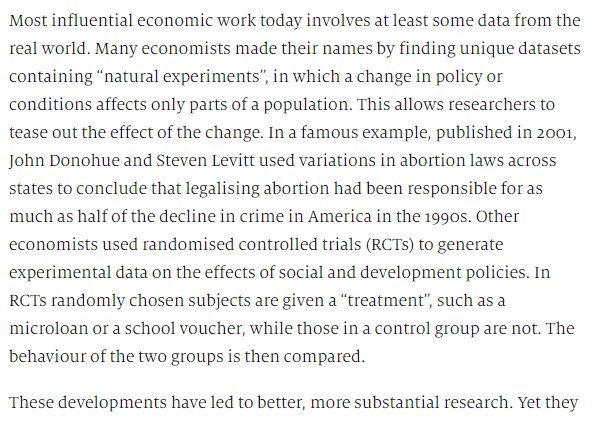
Because of the same general critiques of empirical science that are everywhere nowadays: Publication bias, low power, and replication.
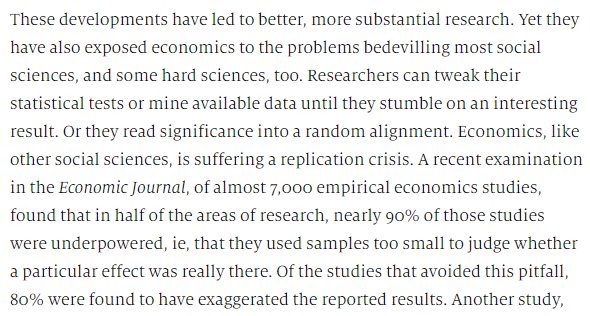
In the public sphere, though, they are often misused. A general attitude of "Don't trust empirical research" has taken hold in some quarters that is lazy, anti-intellectual, and just plain wrong.
Eventually, they converge on the truth.


Anyone who knows how to critically evaluate a paper doesn't need to be reminded to do it.
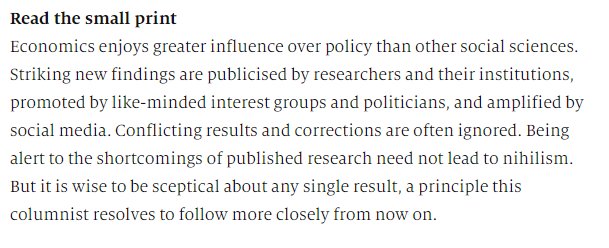
But people do this because of *politics*, not because of complacency about p-values or whatever!
But they could have been a lot better!
Is there something in British politics that makes it necessary to bash economists to prove you're Very Serious these days? Something about Brexit? Or Corbyn?
(end)







